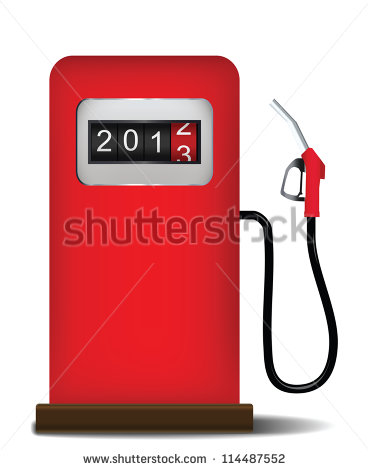Government optimistic of rewarding benefits on new petrol price

Last week’s increase in the price of Premium Motor Spirit (PMS) has continued to generate reactions from Nigerians from all walks of life.
The Federal Government on Monday, May 9, announced the increase of the pump price of PMS (petrol) from N86.50 to a maximum of N145 per litre.
The government said that the new fuel price regime was designed to tackle the hardship facing many Nigerians in efforts to procure petrol, while creating additional 200,000 jobs in the country.
It argued that contrary to insinuations that the new pump price of petrol was an imposition on Nigerians; relevant stakeholders were carried along in the deliberation prior to the price increase.
A document obtained from the Ministry of Petroleum indicates that the leadership of the Senate, House of Representatives, Governors Forum, NLC, TUC, NUPENG and PENGASSAN participated in the meeting.
It said that the meeting noted that the main reason behind the inability of importers of petroleum products to obtain foreign exchange at the official rate was due to the massive decline in the foreign exchange earnings of the Federal Government.
It said that against the foregoing, private marketers have been unable to meet their obligation of supplying 50 per cent of the total national PMS requirements.
The document said that the stakeholders agreed that in order to increase and stabilise the supply of petrol, any Nigerian entity was free to import the fuel, subject to existing quality specifications and regulatory guidelines.
Dr Ibe Kachikwu, the Minister of State for Petroleum, has been highlighting the short and long term benefits of the new PMS pricing policy.
.
He said that 200,000 jobs would be created via the envisaged new investments in refineries and retailing of petroleum products.
Kachikwu said that the new pricing template would also prevent the potential loss of nearly 400,000 jobs in existing investments in the sector.
“The new template will also ensure the total elimination of hoarding, smuggling and diversion of the product, while also stabilising price at the actual product price. The new petrol price would enable marketers to source their foreign exchange outside the framework of Central Bank of Nigeria (CBN) and ensure adequate product supply in all locations across the country.
“The new price regime will permanently eliminate subsidy payments and ensure the availability of funds for the full payment of allocations to the three tiers of government every month by Federal Accounts Allocation Committee.
“It will also provide additional funds for other palliatives and help in stabilising the economy by creating access to development loans,’’ Kachikwu said, assuring that the palliatives are also captured in the 2016 budget.
Beyond that, the Vice-President, Prof. Yemi Osibanjo, offered further explanations on the rationale behind the fuel price increase.
He stressed that Nigeria’s local consumption of fuel was almost entirely imported.
He said that the NNPC exchanged crude from its joint venture share to provide about 50 per cent of local fuel consumption, while the remaining 50 per cent was imported by major and independent oil marketers.
“These marketers, up until three months ago, sourced their foreign exchange from the CBN at the official rate.
“However, since late last year, independent marketers have brought in little or no fuel because they have been unable to get foreign exchange from the CBN.
“The CBN simply did not have enough foreign exchange in April, as oil earnings dipped to 550 million dollars and the amount required for fuel importation alone is about 225 million dollars.
“Meanwhile, NNPC tried to cover the 50 per cent shortfall by dedicating more export crude for domestic consumption.
“Besides the short-term depletion of the Federation Account, where the Federal Government and states receive funding, and further cash-call debts pilling up; NNPC also lacked the capacity to handle 100 per cent local fuel consumption around the country.
“The corporation is responsible for roughly 50 per cent of fuel supply; which partly explains the reason for the lingering scarcity,’’ he said.
In a positive development, activities on the Nigerian Stock Exchange (NSE) have recorded an appreciable growth, appreciating by 2.23 per cent, following the renewed confidence of investors in oil and gas stocks, occasioned by the fuel price increase.
Statistics from NSE indicates that the Nigerian equity market rose to its highest level; a level that was last seen in January 2016.
The market capitalisation rose by N198 billion or 2.23 per cent to close at N9.098 trillion, compared with N8.900 trillion in the previous month.
Malam Garba Kurfi, the Managing Director, APT Securities and Funds Ltd., attributed the growth to the partial deregulation of the downstream sector, which informed the recent hike in the price of petrol by the government.
Kurfi said that investors believed that with the upward review of the pump price of petrol, fuel retailers would be able to improve margins and boost profits.
He added that the nation’s equity market received a significant boost with the news of the presidential assent to the 2016 budget.
Citizens from all walks of life have been expressing similar viewpoints on the recent increase in the pump price of petrol.
Alhaji Abdulsalam Abdullahi, the Imam of Lokogonma Juma’at Mosque in Lokoja, urged all Nigerians to support the Federal Government’s decision to review the price of PMS.
He, however, solicited the total removal of the subsidy on petroleum products, saying that it would bring about the end of the incessant fuel scarcity which had been plaguing the nation for the past five months.
“This is the best time to make sacrifices in efforts to curb corruption in the nation’s oil and gas sector,’’ he said.
The cleric, however, urged the government to make pragmatic efforts to promote the socio-economic wellbeing of the citizens.
“The government at the centre must place priority on the welfare and wellbeing of all its citizens.
“Things must be put in their rightful places, everyone must be given equal treatment without any room for undue sentiments,’’ he said.
A chemical engineer, Mr Peter Amao, applauded the decision to review the price of petrol, insisting the government’s subsidy on fuel prices had since long lost its purpose as its effect on the public had virtually been non-existent become most Nigerians were not getting the product at the subsidised rate.
“Here in Lokoja, for instance, we had been buying petrol at prices between N160 and N200 per litre, in spite of the subsidy by government,’’ he said.
Sharing similar sentiments, Mr Tony Obi, a policy analyst, argued that it was absurd for the government to continue to spend millions of naira on fuel subsidy while a lot of things were glaringly begging for attention in the country.
He said that the current economic downturn, the incessant cases of oil pipeline vandalism and the appreciable decline in national revenues had somewhat made it expedient for the government to review the fuel price.
He said that the government would now be able to channel the funds, hitherto used for the payment of fuel subsidy, into other productive sectors.
Obi, however, underscored the need to introduce realistic measures that would cushion the impact of the fuel price increase on the citizens, particularly on civil servants.
“All those threatening protests should sheath their swords and put reasoning first before sentiments.
“They should try to understand the short-term and long-term effects of the new fuel pricing mechanism before reacting,’’ he said.
Supporting such calls, Stand Up Nigeria (SUN), a civil society organisation, said that the new fuel pricing policy was in order and advised anyone against engaging in protests that were based on selfish or parochial interests.
The National Coordinator of SUN, Mr Philip Agbese, said that the government’s decision had demonstrated its zeal to alleviate the suffering of the citizens who often wasted several man-hours in queuing for fuel at filling stations
Similarly, the National Union of Petroleum and Natural Gas Workers (NUPENG) and the Petroleum and Natural Gas Senior Staff Association of Nigeria (PENGASSAN) have expressed their support for the Federal Government with regard to the new price of petrol.
In a joint briefing in Calabar, NUPENG Chairman, Igwe Achese and PENGASSAN Chairman, Francis Johnson, applauded the Federal Government for the action.
They said that the unions had long agitated for deregulation of the downstream sector, adding that recent measure would grow the nation’s economy and create a lot of job opportunities.
They, however, called on the government to immediately start the process of introducing measures to cushion the effect of the new PMS Price on Nigerians.
“We demand immediate commencement of negotiations on minimum wage for workers across all cadres,’’ he said.
Meanwhile, the Minister of Information, Alhaji Lai Mohammed, has explained that the new fuel price regime should not be misconstrued as the removal of subsidy since there was no provision for subsidy in the 2016 Budget in the first instance.
He said that a subsidy claim of N13.7 per one litre of petrol was often paid to marketers under the N86.50 per litre price regime, adding that this amounted to the payment of N16.4 billion as subsidy every month.
“However, there is neither funding nor appropriation to cover this in this year’s budget,” he said.
Perceptive analysts, nonetheless, argue that even if the citizens are not particularly averred to the new petrol price regime, considering its envisaged benefits, the Federal Government should make pragmatic efforts to introduce palliative measures to cushion its effects on the citizenry








